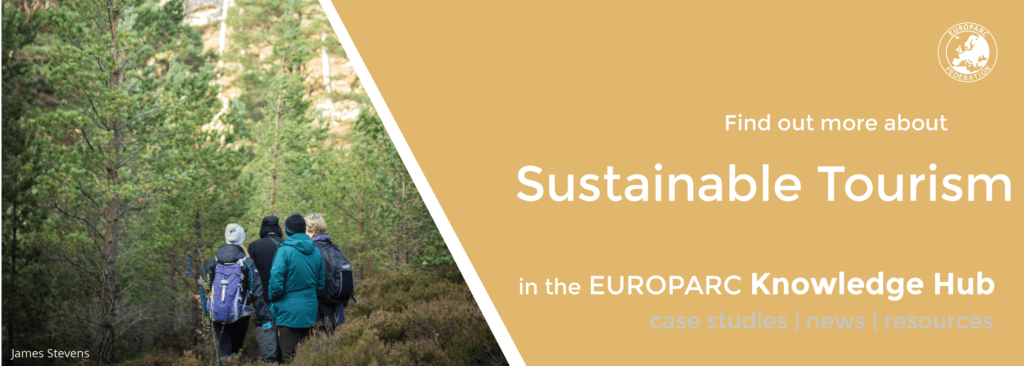SAVE THE DATE: Policy event Sustainable Tourism Training for Tomorrow
Mark your calendars for this final event within the ERASMUS+ project Sustainable Tourism Training for Tomorrow.
How can we upskill to ensure sustainable tourism that is good for people, good for business and good for nature in the covid world?
- 17th of June
- 9:00 CET
- Online
Join the EUROPARC Federation and partners of the Sustainable Tourism Training for Tomorrow Erasmus+ project to discuss, debate and discover what new skills, knowledge and training is needed, to ensure we have sustainable tourism for tomorrow.
We will hear from European politicians, the European Commission as well as practitioners from our Protected Areas in Europe. Dr Anna Spenceley, CEO STAND Ltd; Chair IUCN WCPA Tourism and Protected Areas Specialist Group; Director, Global Sustainable Tourism Council will offer her global perspective.
Registrations will open two weeks before the event
ERASMUS+ Sustainable Tourism Training for Tomorrow project
The ERASMUS+ Sustainable Tourism: Training for Tomorrow” project aims to build the capacity of professionals in the field of sustainable tourism. The project runs for a period of 30 months and will finish this year. Funded through the ERASMUS+ Key Action 2 (Cooperation for innovation and the exchange of good practices and Strategic partnerships in the field of education and training), the project brought together partners working on different fields in the sustainable tourism sector:
- 2 universities: The Hasselt University (BE), who is also the project leader, and the University of Hull (UK)
- The network of European Protected Areas: EUROPARC Federation (DE)
- The network of ecotourism professionals in Spain: Asociacion de Ecoturismo en Espana (ES)
- 2 park authorities: Ente Parchi Emilia Occidentale (IT) and Montagne de Reims Nature Regional Park (FR)
Federparchi – EUROPARC Italy and the French Federation of Regional Nature Parks are also engaged in the project as associated project partners.
The project has already produced a Training Needs Analysis report, which was developed by the EUROPARC Federation with the support of all partners.The Hasselt University then oversaw the definition of a Sustainable tourism curriculum, a training toolkit, which is accessible as an online training platform.
>>You can access the free online training platform here<<<
It is available in English, French, Spanish and Italian.
By the end of the project, partners will deliver a report with recommendations for policy and practice.
Welcome! All EUROPARC members that joined in 2020
Boschi Carrega, Parchi del Ducat[o. By Federico Lugli
Over the last year, 12 new members from 8 countries joined the EUROPARC Network and we would like to introduce them with a late but warm WELCOME!
Welcome to the newcomers from 2020!
The year 2020 was a tough one for everyone, including Parks and Protected Areas in Europe. The more we appreciate the organisations and individuals who decided to join the EUROPARC family in the uneasy times, to strengthen our network and look for solutions together.
Drumroll for the new members from:
BELGIUM
Brussels Environment
Brussels Environment is the Brussels regional public body responsible for all environmental issues including nature protection and green spaces / peri-urban forest management.
DENMARK
Geopark South Fyn Archipelago
The Geopark South Fyn consists of an archipelago with 55 islands and inlets. Its main island Funen is known as the homeland of Hans Christian Andersen.
The area was once dry land but during early Holocene global sea level rise, the area was flooded and the archipelago was created. The territory is influenced by a strong maritime cultural heritage and an outstanding number of market towns, manors and castles. The geology of this Protected Area consists mainly of coastal cliffs, spits and reefs, wildlife reserves, marine areas, wetlands, lakes and hills.
GREECE
Northern Pindos National Park
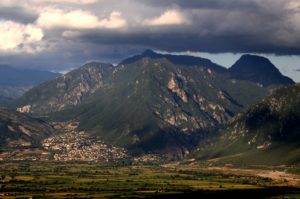
The Northern Pindos National Park was established in 2005. It is located at the Northwestern part of Greece and administratively belongs to the Regional Sections of Ioannina and Grevena. It extends over an area of approximately 2000 km2 and it is the largest terrestrial National Park in Greece. It includes the entire region of Zagori, the areas of Konitsa and Metsovo and the western part of Grevena.
The Park geographically unifies the pre-existing National Forests of Pindos (Valia Kalda) and Vikos-Aoos, with their in-between geographical region. The creation of the Northern Pindos National Park after the integration of these areas has as its main purpose the preservation, protection and enhancement of the natural and cultural heritage of the region.
Management Authority of the Schinias – Marathon National Park, Mt. Imittos and Southeast Attica Region
The Management Authority of the Schinias is in charge of 13 Protected Areas, all of which are inside and in the suburbs of Athens. As such, it is responsible for the majority of the Protected Areas and Natura 2000 sites in the Attica region – including both marine and terrestrial areas. The protection, management and the preservation of these areas is a great challenge due to pressures posed by almost 5 million inhabitants of Athens.
ITALY
Po Delta par Veneto Regional
The Po Delta is the largest Italian wetland, and second largest in Europe. It is a natural paradise for birdlife in an ever-changing landscape of land and water.
The unique landscape has been designated a UNESCO World Heritage site since 1999.
Management Authority for Parks and Biodiversity Emilia Centrale
The Management Authority for Parks and Biodiversity “Emilia Centrale” is a Public Authority established by Emilia Romagna Region to manage Protected Areas of the Modena and Reggio Emilia provinces. Its legal and administrative headquarters lies in Modena.
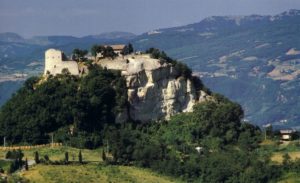
The Management Authority currently oversees 9 Protected Areas and 13 Natura 2000 sites, representing a rich and varied natural environment.
Management Authority for Parks and Biodiversity Western Emilia
The Western Emilia Management Authority, also known as Parchi del Ducato, was legally established in 2012 from the union of five Regional Parks and has a dual role: first of all it manages different activities in the field of nature conservation and sustainable development. Second, it also carries out projects to pursue the development of the areas included in the parks: often rural mountain areas, rich in history, culture and with small agricultural areas.
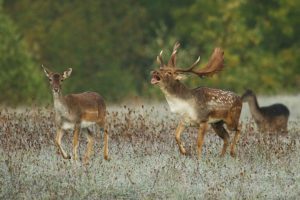
The main goals of the Organization are therefore nature conservation and cultural development of the territories included in the Regional Parks in the Provinces of Parma and Piacenza (in particular Taro River Park, Boschi di Carrega Park, Cento Laghi Park; Stirone and Piacenziano Park; Trebbia River Park) in an Area covering the West side of Emilia-Romagna.
THE NETHERLANDS
Veluwe Alliance
The Veluwe Alliance is a network collaboration comprising nearly 40 active partners in the Dutch natural area de Veluwe. Together the network works towards being the most hospitable destination in the Netherlands, in which a high biodiversity is in harmony with a unique experience of landscape, heritage, towns and cities. Aiming to enhance a healthy leisure economy and sustainable tourism, their mission contributes to: protecting and strengthening nature and landscape, improving the quality of life for the inhabitants and sufficient employment in the Veluwe.
SPAIN
Environmental Hydraulics Institute of Cantabria, FIHAC
The FIHAC Cantabria was created in 2007 as a research center jointly governed by the University of Cantabria and the Government of Cantabria. It is formed by experts from different disciplines that address a wide variety of challenges in coastal engineering and environmental management.
Being at the head of the coastal and oceanic engineering research institution in Spain, the Institute has participated in more than 1000 projects in up to 60 different countries. Among the main working areas are:
- study of maritime climate and the risk associated to climate in coastal areas,
- development of nature-based solutions for climate change adaptation and mitigation in coastal areas based on the role that coastal ecosystems play as natural coastal protection and carbon sinks,
- development of methods, procedures and tools for environmental management (e.g. habitat and species conservation status, marine spatial planning, coastal management plans, pollution risk assessment).
SWEDEN
Thomas Hansson
Last year, we also welcomed one new individual member, with an extensive experience in environmental management and nature conservation. Mr. Hansson worked in the Swedish National Park Stenshuvud from 1986 and was responsible for the management of the National Park until 2005. Since then, his work consisted in implementing national guidelines for visitors’ centres. From 2009 until 2011, Mr Hansson was chairing the Nordic Baltic section of EUROPARC and was elected President of the Federation from 2011 to 2014. Since then, Mr. Hansson has been working with long term planning for National Parks, Nature Reserves and also outdoor activities, related to the Protected Areas. He is a member of the IUCN Commission WCPA.
UNITED KINGDOM
National Association for Areas of Outstanding Natural Beauty
The National Association AONB (NAAONB) has three objectives:
- to promote the conservation and enhancement of natural beauty including the physical, natural, cultural and built environment in and around Areas of Outstanding Natural Beauty, other protected areas, and those areas for which such designation might be pursued,
- to advance the education, understanding and appreciation of the public in relation to the conservation and enhancement of natural beauty including the physical, natural, cultural and built environment of Areas of Outstanding Natural Beauty (AONB), other protected areas and those areas for which such designation might be pursued,
- and to promote the efficiency and effectiveness of those organisations promoting or representing Areas of Outstanding Natural Beauty, other protected areas and those areas for which such designation might be pursued.
Arnside & Silverdale Area of Outstanding Natural Beauty
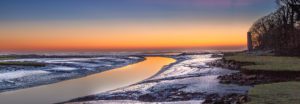
Jenny Browns Point (c) David Toft
Stunning limestone pavements, ancient woodlands, intimate orchards and meadows and an impressive coastline make Arnside & Silverdale Area of Outstanding Natural Beauty one of England’s finest landscapes. The work of the AONB Partnership aims to conserve and enhance this extraordinary place now and for the future.
